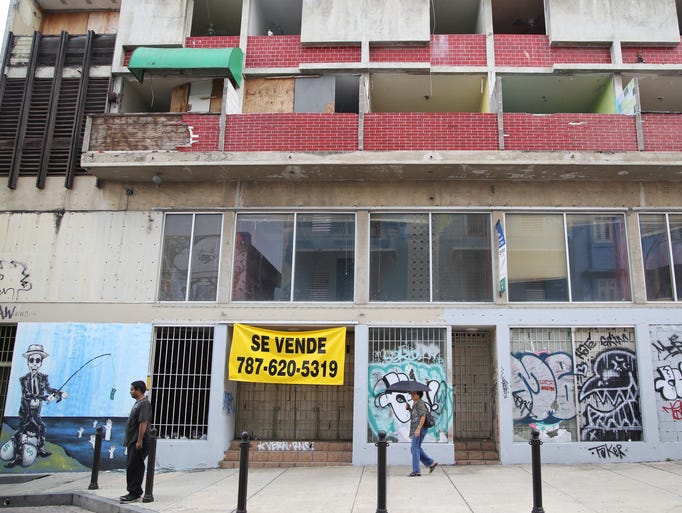When Alejandro García Padilla took office as governor of Puerto Rico in January, he quickly realized just how far the island had sunk.
The unemployment rate of 14.6% exceeded that of any U.S. state. Public worker pensions were strangling the budget. Murders had soared to record numbers as the drug trade overwhelmed the island.
What's more, the island of just 3.7 million residents owed a staggering $70 billion in debt and had run up a $2.2 billion budget deficit that led credit rating agencies to downgrade Puerto Rico bonds to near-junk status.
"I would say, 'I should ask for a recount,' " García Padilla, 42, said of his first days in office.
Puerto Rico has become the latest poster child for serious debt woes. Its massive problems have led some to liken it to Greece, which has sucked $170 billion in bailout money from European countries and is still teetering toward default.
Global debt markets are concerned about default. The problem is particularly acute in the U.S. mutual funds industry, where many Americans have their retirement savings.
Morningstar, the investment research firm based in Chicago, says as much as 80% of Puerto Rico's $70 billion debt has found its way into muni-bond funds, and 180 mutual funds in the USA and elsewhere have at least 5% of their portfolios in Puerto Rican bonds.
"All of a sudden ... the guy who usually spends his time playing golf is saying, 'Hey, do I have some of that?' and their broker is saying, 'Yes, you do,' " said Sergio Marxuach, an economist at the Center for a New Economy, a Puerto Rican think tank.
Puerto Rico, which became a territory of the United States in 1898 after a war with Spain, cannot legally file for bankruptcy. The island's constitution states Puerto Rico must make its debt payments before it pays for anything else.
"I would have to stop paying salaries, or close the department of health, education, police, everything before we went into default," García Padilla said.
Its only remaining options are to cut spending and raise taxes, beg Congress for a bailout or refuse to pay.CLICK the Chart below to be taken to the Interactive version. Then scroll to the bottom of the page:
Read the rest of the story HERE.
If you like what you see, please "Like" us on Facebook either here or here.
Please follow us on Twitter here.
Please follow us on Twitter here.







1 comment:
I Pointed this out back in early October suggesting that we all need to keep an eye on this. Things there don't seem to be getting any better:
MARK MY WORDS, with all the American's portfolios invested there, there will be a cry to bail them out. NOW is the time to make noise to your Senators and Congressmen...NO BAILOUTS!
If these fools were stupid enough to fall for the high interest rates..LET THEM..live with the results!
Post a Comment